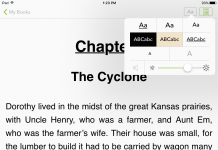![]() According to a report in The Bookseller, Henry Volans, head of Faber Digital, has been tasked to form a new division of Faber and Faber, Faber Press, with the goal of creating a new kind of business for the venerable UK literary publisher. The exact purpose of this new structure is not yet clear, except that, according to several reports, it unites Volans’s current purview at Faber Digital with Faber Finds and Faber Fine Press, as well as embracing Faber’s poetry, drama, film, and classical music lists.
According to a report in The Bookseller, Henry Volans, head of Faber Digital, has been tasked to form a new division of Faber and Faber, Faber Press, with the goal of creating a new kind of business for the venerable UK literary publisher. The exact purpose of this new structure is not yet clear, except that, according to several reports, it unites Volans’s current purview at Faber Digital with Faber Finds and Faber Fine Press, as well as embracing Faber’s poetry, drama, film, and classical music lists.
Faber Press apparently does not bring any change in editorial policy, with commissioning still in the hands of the original editorial team, according to The Bookseller. Rather, Volans describes his role in the same article as broad responsibility for Faber’s arts publishing, leading a fusion of digital publishing strategy with traditional publishing strategy. And almost all the emphasis in comment and coverage on the new platform appears to be on channels and discoverability rather than genres and editorial approaches, with Volans and Faber CEO Stephen Page talking about issues in reaching readers through a shrinking bricks-and-mortar retail network, and the challenges in creating value both for them and the authors.
Henry Volans has been widely feted as a guru of digital publishing, with extensive coverage of his insights and opinions regarding developments in contemporary publishing. The question this whole new venture raises is whether publishers, especially in certain niches, now feel that there is no sense breaking out digital into a separate division any more, and that the whole marketing, distribution, and fulfilment ends of the operation are better handled by merged units covering both ebooks and printed paper. After all, Amazon’s ferociously effective fulfilment and recommendation engines all work just as well on print as on digital, and bigger publishers than Faber – HarperCollins to name but one – have been working very hard to try to bring more of those Amazonian (Amazonesque?) capabilities in-house.
Is there something distinct about literary and high-culture publishing that favors, or even requires, this approach, though? That will be an interesting question to get an answer to. After all, literary and cultural publishing is very niche, with some strong affinities to academic publishing, and you wonder if it really has enough networks and support communities to give it the same kind of natural channels for outreach as, for instance, in science fiction with its cosplay and fan cons, or academic publishing itself. Perhaps literary publishing is just a little too vague and diffuse to have such clear-cut marketing platforms, and needs a new, tighter strategic approach. Or perhaps this simply reflects internal shortcomings at Faber. I for one am going to be watching to see what emerges as Faber Press presses on.

































